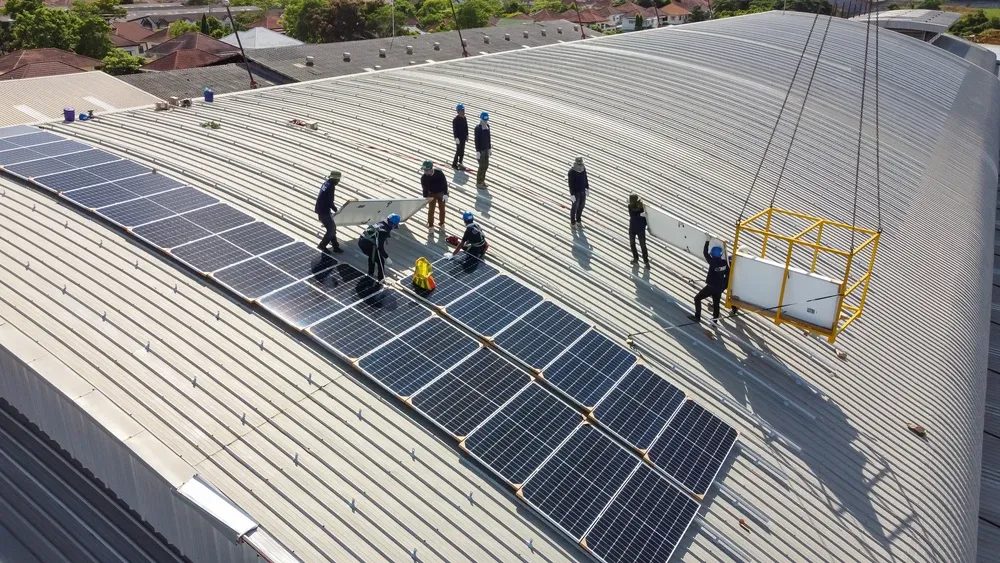Operations and Control of Power Plants Course
Introduction:
The trainees at the power plant should be able to demonstrate the appropriate skills and knowledge in respect of its operations and maintenance. This training is designed for personnel with an intermediate level in operations and maintenance of power plants.
The course will fully recommend the Operations and Control of Power Plants. The program will address both mechanical and electrical engineering, including electrical drives and machines, thermodynamics, among others, enabling the learners to take up power plant operational careers successfully.
This training includes control variables, control mechanisms, and instruments; process control and the control of process devices such as valves, sensors, actuators, heat exchangers, and compressors. It helps learners grasp the key elements that aid in the effective operation of a power plant.
Objectives:
At the end of this Operations and Control of Power Plants course, the participant will be able to:
- Develop an understanding of the details and processes involved in the operation and maintenance of power plants.
- Interpret and evaluate the operational structures of flow diagrams and control schemes under the focus of a power plant’s environment.
- Become acquainted with techniques, management, and options in preventive and corrective actions in power plants.
- Know the operation parameters, operational disturbances, and operational control of power plants for continuous running.
- Understand special characteristics of power plants, criteria used for their design and construction, and efficiency improvement factors.
Training methodology:
- Case Studies
- Group Discussions
- Hands-On Simulations
- Problem Solving Sessions
- Interactive Q&A
- Analysis of Situations from Real Life
Course Outline:
Unit 1: Basics of Electrical Engineering and Mechanical Engineering
- Focus on sensors and actuators technology.
- Understand evaluation processes associated with pumps, compressors, turbines, fans, and blowers.
- Know the foundation of systems operated on fluids, water, and air.
- Describe control valves, cylinders, and electric actuators.
- Study of thermal analysis.
- Study of Electric Generators, Motors, and Drives.
Unit 2: Gas Power Station
- Basic information about gas power stations and their plant operation processes.
- Understand the fundamentals and thermodynamic principles used in the operation of a thermoelectric power plant.
- Analyze the different parts of a gas turbine and their functions.
- Study of the construction, lubrication system, fuel system, and auxiliary systems.
- Know about protection, control, and instrumentation.
- Protective measures, plant installation, and optimal modes of operation and maintenance.
Unit 3: Thermal Power Station
- Learn about the main types of thermal power plants.
- Explain the fuel burning process and the steam substance transformation phase.
- Review the operations and controls of boiler auxiliaries.
- Comprehend boiler operations and power generation as a whole.
- Heat recovery.
- Learn about methods of boiler emission control, engineering, and field repairs.
Unit 4: Diesel Generator (DG) Power Station
- Identify power plant types, components, and engine types.
- Learn about the classification of engine technology and its analyses.
- Identify all DG types, their characteristics, protection, insulation, earthing, and construction.
- Essentials of the families and components of DG set assemblies.
- Optimize plant layout for DG plants.
- Familiarization with the optimal means of operating and maintaining DG machines.
Unit 5: Process Instrumentation and Control
- Lay the structure of control process basics.
- Learn different methods for measuring and controlling pressure, level, flow, and heat.
- Investigate electronic controllers and their applications in the operation and maintenance of power plants.
- Understand PFD, P&ID, transfer functions, and their application in process design.
- Control of open and closed-loop controllers.
- General principles of operational amplifiers, analog, and digital controllers.


















